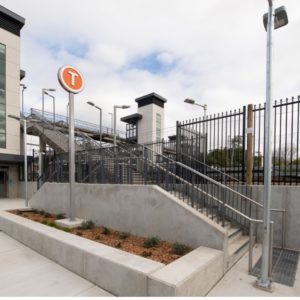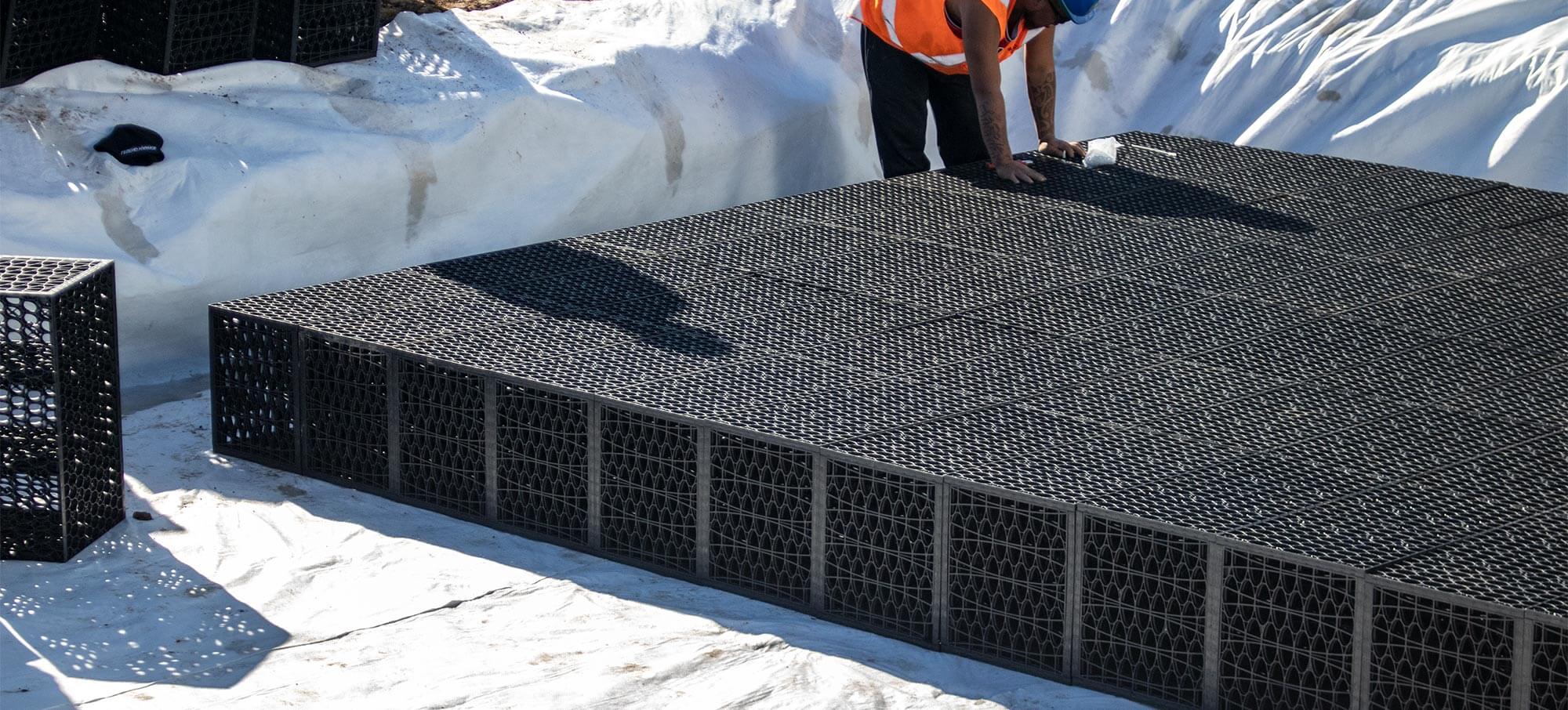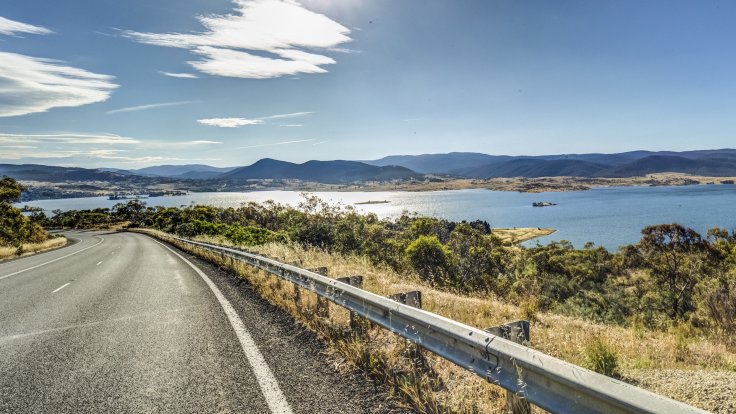The Infrastructure Sustainability Council (ISC) has been supporting the infrastructure industry to drive best practice through the Infrastructure Sustainability Rating Scheme (IS Rating Scheme) since 2012. In this time, the scheme has actively contributed to capacity building and transparently measuring the social, environmental, governance and cultural outcomes delivered by more than $160 billion worth of infrastructure under rating. To help quantify the future benefits the scheme can deliver, ISC engaged RPS to assess the net benefits that IS Ratings provide to Australians. The study used a cost benefit analysis (CBA) or ‘welfare economics’ framework supported by stakeholder engagement. A CBA framework assessed the costs and benefits to all impacted parties within Australia including not only the project proponents, but also the environment, community members and government. Targeted stakeholder engagement added to the robustness and richness of the findings because, consistent with the principles of Social Return on Investment (SROI), this reveals how stakeholders that are actually engaged by the program are affected.
Month: March 2022
ISAP Day March 1, 2022 – sponsored by Perspektiv
Watch the recording of our ISAP Day held in Sydney and sponsored by Perspektiv. Listen to the challenges, achievements, best practice, innovations and learnings from the leaders in infrastructure sustainability across Australia and New Zealand. Topics include:
- The big issues for 2022
- The Sustainability Journey and BAU frameworks
- IS Innovation Show and Tell
- Operational sustainability
- Main Roads WA
- The great sustainability challenge – 2 projects pitch for the best outcomes
- ISC Training Update
- Verifier panel – Key lessons, communicating outcomes and how to write a winning submission
Breaking the Bias: Reimagining Infrastructure | Australian Panel
Watch the recording of our Australian IWD Panel on Breaking the bias: Reimagining Infrastructure co-hosted by the Infrastructure Sustainability Council and Tonkin + Taylor
Our impressive list of panellists will be discussing:
- a world where infrastructure is designed with all in mind;
- a world where when deciding what, where and how infrastructure is to be delivered, more inclusive views are sought;
- a world where the demographics of those delivering the infrastructure better represent the communities the infrastructure serves;
- a world where infrastructure is thought of, not as just an asset, but for its human face – as something that connects people and communities and delivers on their aspirations.
These are all areas where we feel there is potential for bias to currently operate. They also represent the different stages in the life cycle of an Infrastructure asset where those in the sector have an opportunity through their working lives to #domore to change the lives of the communities the infrastructure is designed to serve.
Our Panellists:
- Laura Harvey, Monkey Media Enterprises
- Amanda Yeates, Department of Transport and Main Roads
- Jonathan Cartledge, Infrastructure Australia
- Nicole Neal, Tonkin + Taylor
- Martin Holliday, Tonkin + Taylor
- Patrick Hastings, Infrastructure Sustainability Council
Breaking the Bias: Reimagining Infrastructure
Watch the recording of the New Zealand IWD Panel on Breaking the bias: Reimagining Infrastructure co-hosted by the Infrastructure Sustainability Council and Tonkin + Taylor
Our impressive list of panellists will be discussing:
- a world where infrastructure is designed with all in mind;
- a world where when deciding what, where and how infrastructure is to be delivered, more inclusive views are sought;
- a world where the demographics of those delivering the infrastructure better represent the communities the infrastructure serves;
- a world where infrastructure is thought of, not as just an asset, but for its human face – as something that connects people and communities and delivers on their aspirations.
These are all areas where we feel there is potential for bias to currently operate. They also represent the different stages in the life cycle of an Infrastructure asset where those in the sector have an opportunity through their working lives to #domore to change the lives of the communities the infrastructure is designed to serve.
Our Panellists:
- Penny Kneebone, Tonkin + Taylor
- Michelle Kennedy, Auckland Climate Festival
- Paul Evans, MRCagney
- Rebekah Pokura-Ward, New Zealand Transport Agency
- Grace Schaefer, Tonkin + Taylor
- Adrienne L. Miller, Infrastructure Sustainability Council
Awards showcase sustainability in infrastructure projects
The infrastructure industry continues to set new benchmarks in sustainability, shown by the exceptional achievements recognised at the Infrastructure Sustainability Council Gala Awards 2022.
Held last night in Sydney, the awards celebrated sustainability best practices across Australia and New Zealand.
Infrastructure Sustainability Council (ISC) is the peak body for infrastructure sustainability, advocating for the delivery of cultural, social, economic and environmental benefits in all infrastructure projects.
Infrastructure Sustainability Council Chief Executive Officer Ainsley Simpson said many organisations recognise this as a crucial time to prioritise sustainable development.
“We’re embarking on a decade of rapid transformation, and our members know that sustainable development is both a responsibility and an opportunity. They are taking action to address challenges and move forward sustainably.”
Infrastructure Sustainability Council Chief Delivery Officer Patrick Hastings congratulated the winners for their outstanding work and the positive outcomes achieved in their communities.
“The projects nominated for this year’s awards demonstrate the industry’s commitment to attracting and retaining a skilled workforce, strengthening communities and managing waste, energy and carbon emissions,” Mr Hastings said.
“The Council received submissions across the 10 categories of awards, each demonstrating innovation and ingenuity to contribute to sustainable development goals.
“These awards show others in the infrastructure industry what is possible.”
The award categories for 2022 recognise organisational and individual achievements across a range of categories, including excellence in social, governance, economic and environmental outcomes, as well as outstanding individual contribution to the sector.
A full list of the award winners and their projects is included overlead.
For further information and images please contact:
Karen Jamal
KJ Communications
0412 179 135
karen@kjcommunications.com
About Infrastructure Sustainability Council
The Infrastructure Sustainability Council is Australia and New Zealand’s authority on sustainable infrastructure projects and assets. The Council’s purpose is to ensure all infrastructure delivers cultural, social, environmental and economic benefits. The Council works with more than 20 federal, state and local government departments in Australia and New Zealand. The Infrastructure Sustainability (IS) rating scheme is mandated by delivery agencies and asset operators across Australia and New Zealand, with more than $200 billion infrastructure projects undertaking ratings. The Council represents 200-plus individual companies, departments and associations with a combined annual turnover of more than $50 billion. For more information, contact the Infrastructure Sustainability Council on info@iscouncil.org or visit www.iscouncil.org
Award summaries
- Excellence in governance outcomes
Victoria’s Major Transport Infrastructure Authority (MTIA) North Western Program Alliance (NWPA) won the Excellence in Governance Outcomes Award for its governance framework, Power of the Program.
The framework provides a foundation for leveraging a rolling program of works to drive sustainability.
It ensures that initiatives viewed as best practices then become standard business practice on subsequent projects. This encourages teams to build on past success with new, step-change advances on every project.
NWPA is committed to reducing greenhouse gas emissions across the lifecycle of projects. Power of the Program is driving outcomes in sustainability metrics, as well as the use of innovative practices. NWPA has saved a total of 76,000 tonnes of emissions across projects completed to date.
Judges were impressed by NWPA’s ambition for best practice governance and embedding lessons in real-time. “This program of work demonstrates the importance of carefully designed governance frameworks to achieve tangible positive outcomes, such as increased efficiencies, innovation and sustainability.”
- Excellence in social outcomes
A joint venture between CPB, BAM Ghella and UGL Joint Venture won the Excellence in Social Outcomes Award. The Tunnel, Station and Development (TSD) package of works for Cross River Rail is Queensland’s largest infrastructure project, requiring scarce specialist underground and civil rail skills.
To support project delivery, the joint venture delivered three training initiatives to address the unique challenges faced by entry-level workers. The initiatives established pathways to employment for disadvantaged and underrepresented groups, upskilled school-based apprentices and provided trainee placements with partnering charities.
Specialist underground training and formal recognition of Certificate III in Rail Infrastructure filled a specialist training gap, helping actively address the national skills shortage.
Judges noted the approach provides multifaceted training to access and engage different workforce sectors. “Building practical workforce skills is a key initiative to fulfilling employment areas with large position vacancies. This initiative taps into a target sector of young people to assist with the national road to recovery.”
- Excellence in environmental outcomes
McConnell Dowell Decmil Join Venture (MCDDJV) with MTIA’s Major Roads Project Victoria won the Excellence in Environmental Outcomes Award for their joint project, the Mordialloc Freeway Project.
The MFP is a 9 km freeway link in Victoria, incorporating interchanges, bridges over wetlands and a shared user path. The project implemented a range of world-first sustainability initiatives in response to Victoria’s waste crisis and shortage of quarry materials, creating ‘Australia’s greenest freeway’.
Thousands of tonnes of otherwise waste material were used to construct noise walls, asphalt pavements, concrete reinforcing mesh and stormwater drainage pipes. This shift to sustainable consumption of materials achieved a 27% reduction in embodied energy.
The judges acknowledged the significant effort in innovating new technologies to divert waste away from landfill. “The focus on reduced truck trips, local sourcing and recycling is a powerful way to improve industry practices. The MFP demonstrates the potential cost benefits of improvised sustainability practices while supporting development and scale-up of local industry.”
- Excellence in economic outcomes
Global energy and infrastructure company, Acciona, won the Excellence in Economic Outcomes Award for its work on Department of Infrastructure and Transport’s NorthHub.
NorthHub is an integrated employment, skills and training centre for northern Adelaide jobseekers and South Australian businesses, including Indigenous businesses. The centre was created in response to job losses and significant economic impact following the closure of the Holden manufacturing plant in Adelaide.
Through training and upskilling at NorthHub, Acciona provided workers with sustainable, long-term employment and transferable construction skills.
Judges noted the demonstrated investment in Indigenous businesses and the targeted opportunities for disadvantaged and displaced automotive workers. “This project is leading the way in local workforce participation. Ninety-one per cent of NorthHub’s project spend went to South Australian businesses and 96.6% of onsite hours were performed by South Australian residents. This creates substantial local industry benefit.”
NorthHub sets a new benchmark in the construction industry for engaging local businesses and employees. This innovative approach has since been adopted by other projects across the country.
- Emerging leader
Rosie Dutton, Sustainability Manager at Acciona, won the Emerging Leader award, recognising her influence and contribution to sustainability outcomes.
Just four years into her infrastructure career, Ms Dutton brings a practical, collaborative approach to her work.
She demonstrates the value of sustainability to others in the industry, helping embed sustainability priorities into projects. This has led to a number of outstanding outcomes, including the successful completion of Infrastructure Sustainability ratings for the Sydney Light Rail project, achieving a score significantly higher than expected due to the challenging nature of the project.
Ms Dutton has a continuous drive to learn and share knowledge with her peers and colleagues. This allows her to influence more experienced colleagues and increase support for new initiatives.
Judges commented on Ms Dutton’s industry experience, noting her practical application of sustainability principles into real actions. “Her legacy ensures sustainability is front of mind in all aspects of the project.”
- Sustainability Champion
Pamela Simpson received the Sustainability Champion Award for fostering a strong sustainability culture and integrating sustainability into infrastructure projects.
As Sustainability Team Lead for the planning phase of the Manuwarra Red Dog Highway Stage 4 project, Ms Simpson was instrumental in driving sustainability across multiple teams and consultancies. The focus of this project was to deliver a new highway that was sustainable, met the needs of the local community and was resilient to extreme weather events.
During the project, Ms Simpson harnessed innovative sustainability solutions, such as mapping the Sustainability Management System against the v2.0 Planning scheme. She also designed the ‘Sustainability Roadmap’, a first-of-its-kind system to manage ISC rating submission.
Judges praised Ms Simpson for actively challenging ‘business as usual’ in the infrastructure sector.
“Through engaging her project team and stakeholders, Ms Simpson changed the mindset around sustainability and leaving a positive legacy.”
Ms Simpson’s project work has raised the profile within Main Roads Western Australia (MRWA) of ‘making sustainability happen’. She is currently working with MRWA to inspire a similar commitment to sustainability in other projects.
- Outstanding individual contribution to the sector
Liz Root won the Outstanding Individual Contribution to the Sector Award for enhancing sustainability and championing social outcomes in the New Zealand construction sector.
Known for her role as Principal Sustainability Advisor on the Auckland City Rail Link (CRL), Liz was an early adopter of the ISC framework and realising social outcomes on a major project.
Ms Root has played an integral role in supporting numerous clients in their sustainability journey, generously sharing her learnings and knowledge with peers and stakeholders.
Ms Root has left an enduring legacy within the CRL team by creating employment and economic outcomes for Māori and Pacific people, youths and disadvantaged workforce groups. She also led a world-first initiative at CRL by partnering with mana whenua to embed te ao Māori into the ISC framework.
Judges commended Ms Root for her lasting contribution to the community, CRL and the broader industry. “The two-fold focus on cultural inclusion and the development of junior colleagues creates a strong sense of legacy.”
- Outstanding achievement – IS operations
Downer EDI Works won the Outstanding Achievement for Infrastructure Sustainability Operations Award for its North West Tasmania Road Maintenance Contract.
This project delivered base services, minor works and periodic works to maintain the North West State road network in North West Tasmania, including pavement, signage, verge and drainage services.
As part of the project, Downer EDI Works monitored, recorded and modelled fuel and energy use from variable activities, including direct, indirect and value-chain greenhouse gas emissions. This data has been extrapolated to forecast usage across the useful life of the road network.
The project also monitored water consumption, implementing strategies to use non-potable where possible.
Key initiatives to reduce materials included implementing periodic works programs, improving line marking programs and using recycled material within the asphalt.
Downer EDI Works also collaborated with Latrobe Council for works involving a main street and car parking bays, working to minimise impacts to the community and save costs.
- Outstanding achievement – IS design
Arenco (NSW) Pty Ltd won the Outstanding Achievement for Infrastructure Sustainability Design Award for the Rooty Hill Station upgrade and multi-storey car park (NSW).
This project improved accessibility and commuter parking at Rooty Hill Station by installing four new lifts, accessible pedestrian links and car spaces, upgraded family accessible toilets and a new six-storey car park.
Using GreenPower, biofuels and renewable energy technologies, the project achieved a 38.4% energy substitution. An 1140-panel rooftop solar system supplements the power requirement for the car park. Five electric vehicle charging spaces provide EV charging for up to 10 cars, the first system of its kind for Transport for New South Wales.
A key innovation for Areco (NSW) Pty Ltd was the customised OSD Filtration System to manage stormwater in the car park. The system simultaneously captures and filters stormwater, allowing it to be reused for landscaping.
- Outstanding achievement – IS As-built
The CTD Alliance (Acciona, CPB, Aurecon, WSP, MTM, LXRP) won the Outstanding Achievement for Infrastructure Sustainability As-Built Award for their work on MTIA’s Caulfield to Dandenong Level Crossing Removal Project.
The project saw Melbourne’s busiest rail line transformed with the construction of an elevated rail solution—a verified Australian first.
To deliver the project, the CTD Alliance removed nine level crossings, rebuilt five stations, upgraded 72 km of rail systems, power and signalling, and extended platforms to support 63 new trains, boosting passenger capacity by 42%.
Key energy reduction initiatives included solar-powered LED markers and ECO mode escalators, reducing overall lifecycle emissions by 55%.
The ecological value of the site was improved by 70% through offset planting of native vegetation, the installation of fauna ladders and the creation of open green spaces. Several innovations were used to reuse and significantly lower the volume of contaminated material taken to landfill.
New Approach needed for infrastructure to lift its weight in the race to reach net-zero
Despite the best of intentions, current approaches to achieving net-zero in the infrastructure sector will only get us so far. A new approach is required if we want to limit global warming to 1.5 degrees.
These are the findings that have come out of the Place-based approach to net-zero report released Thursday by Infrastructure Sustainability Council and Mott MacDonald at the ISC ReConnect Conference.
Infrastructure has a leading role to play in delivering climate action. Infrastructure enables up to 70 per cent of emissions through the way we plan, design, build and use infrastructure assets.
The report calls for a systemic, networked approach to accelerating decarbonization focused on towns, cities and regions rather than just assets, sectors and materials.
‘’The cities and regions in which we live, work and play are as unique and diverse as we are as individuals – no one is the same. The journey to net-zero looks completely different for inner city Melbourne to the Hunter Valley to the South Island of New Zealand,’’ said Ainsley Simpson, CEO of the Infrastructure Sustainability Council.
‘’While we are all working towards a common global goal of positive climate action, how that is delivered from place-to-place needs to be responsive to the specific context, strengths and vulnerabilities of those communities – particularly if we want to leave a lasting positive legacy,’’ she said.
‘’Climate change is a complex crisis that will require a systems-solution. We will only succeed through challenging ourselves to reach beyond the constructs, and silos, of asset class and life cycle stages and work closely with stakeholders and communities to deliver the solutions they need and that they know will work.’’
‘’This is a call-to-action for the infrastructure sector to lead by example, thinking globally, acting locally in the cities and regions which we live, work and play.’’
”Place-based approaches have started to infiltrate our development and infrastructure approaches in Australia and New Zealand, but there is much to learn from international examples that demonstrate successful outcomes towards achieving net zero mandates” said Amanda Sturgeon, Climate Change Practice Lead at Mott MacDonald.
“The true power of a placed based approach is that it unlocks innovation and new potential that would not be evident from a typical top-down approach, such as local business investment and community engagement in net zero solutions,” said Ms Sturgeon.
The report calls for collaborative change across a number of areas including:
- For sustainability and climate action to be a core objective of the infrastructure reform and business case.
- Embedding of quadruple bottom line outcomes in infrastructure planning from earliest possible opportunity.
- Accelerating our transition to more collaborative ways of working through both contracts and culture and commit to putting people and places at the heart of what we do.
- Investing in capability, resources and systems to enable an accelerated transition to net-zero
- Leading with good governance that enables collaborative planning, delivery and decision-making across every town, city and region.
One of the first actions undertaken by the ISC will be to convene an ISC Member Coalition of committed infrastructure leaders to drive this approach forward, with a view to pilot placed-based practices across Australia and New Zealand.
Please find a full version of the report by clicking here.
For further information please contact:
Infrastructure Sustainability Council
Laura Harkins-Small
Head of Advocacy
Mott MacDonald
Amanda Sturgeon,
Regenerative Design Lead
ISC report calls for industry shake up to deliver infrastructure for people, by people
Industry fragmentation, subjective decision-making, risk aversion and sectoral capacity are all key barriers to realising world-class infrastructure performance in a report joint launched by the Infrastructure Sustainability council and Urbis on Wednesday.
Advance our nations, fair – world-class infrastructure for thriving nations explores the relationship between world-class infrastructure and thriving nations, with new opportunities identified that deliver investment returns for all beneficiaries, ecosystems and economies.
‘’Infrastructure is instrumental in building resilience and helping us drive and reinforce positive change,’’ said ISC CEO Ainsley Simpson.
“The infrastructure sector is key to addressing some of the major challenges of our time whether it is climate change, addressing inequality or riding the wave of the technology disruption,’’ said Ms Simpson.
“We will only be able to do this with a new order of leadership – purpose needs to be at the core; with our new drivers being progress, partnership and people,’’
“In this coming decade, competition does not take the form of organisations; but the ticking clock of climate change and rising inequality – we just need to recognise we do have a shared vision and that we are all on the same team,’’
“Competitive advantage will not be defined by IP, rather by the speed at which innovations are shared to reduce the learning curve for others,” she said.
Urbis Future State Director Kate Meyrick says we’ve lost sight of infrastructure’s purpose – to rightfully serve the people it exists for.
“Infrastructure is all about hope – it’s about solving problems and enabling opportunities. If we want to be a better ancestor for future generations then we need to take a more restorative approach and make far bolder decisions today.” said Ms Meyrick.
“A critical factor in making progress and achieving any success will be working together. We need to start joining the dots and engage a place-based collaborative approach,”
“First, we must understand that infrastructure is the essential platform for realising long-term accomplishment. With collective input, we will make real progress by sharing local and global learnings, systems, and achievements. Only then will we truly achieve infrastructure’s purpose of driving social progress, quality of life, resilience and productivity in our communities, cities, regions and nations,” said Ms Meyrick
The report calls for collaborative reform across eight key areas including:
- AN INDUSTRY UNITED BY ITS DECLARED PURPOSE – Driving change from within underpinned by a cultural shift from monopolistic to a common-good approach.
- KNOWLEDGE AND CAPACITY BUILDING – To build the expertise of the sector, accelerate the sharing of new ideas that drive service level innovation.
- CODIFYING EXCELLENCE – Setting out the standards of world-class infrastructure to clarify expectations; ensuring alignment with relevant international rating
- A ROBUST DATA PLATFORM – Combining the longitudinal and real-time information required to drive evidence-based decision-making. Underpinning transparent prioritisation and business case development.
- A FULLY INTEGRATED INFRASTRUCTURE MODEL – Driving change from within underpinned by a cultural shift from a monopolistic to a common good approach.
- PLACE-BASED, CREATING INTERGENERATIONAL VALUE – Clearly solving for a defined problem and generating new opportunity through more enlightened delivery models grounded in conversations with the end user.
- PROCUREMENT BASED ON MULTI-DIMENSIONAL VALUE – Capturing all positive externalities and addressing negative impacts. Embedding resilience and demonstrating the highest and best use of funds.
- FUNDING SECURITY – Depoliticising funding and increasing certainty, connecting funding to outcomes overtime. Leveraging new forms of finance instrument to meet the burgeoning cost of transformational infrastructure.
The Infrastructure Sustainability Council will be assembling a Coalition of their members to review the report and collaborate across industry to drive this agenda forward.
Please find a full version of the report by clicking here
For further information please contact:
Infrastructure Sustainability Council
Laura Harkins-Small
Head of Advocacy
Urbis
Kate Meyrick
Director Future State








